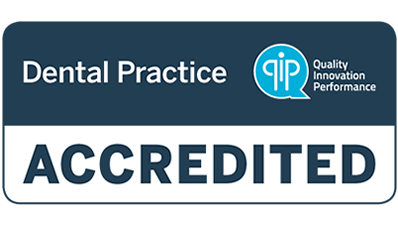Dental FAQ
Do I need a filling?
Often fillings are small and painless in the beginning. But over time as the filling gets larger it can start to become painful. Just like any dental treatment, it is best to get a filling done sooner rather than later. That way a little problem doesn’t turn into a big one.
If you are experiencing any pain or sensitivity to either hot or cold we recommend you book an appointment with us as soon as possible.
How much does a filling cost?
One of the most common questions regarding fillings is how much a filling costs. This will vary greatly depending on the size of the filling (how many surfaces), position of the tooth and the type of material used. We recommend you book an appointment time with one of our dentists to get an accurate price.
How can I get my kids to brush their teeth?
Be enthusiastic and Make it fun! kids want to do the things their parents do. If your children see you brushing your teeth and displaying excellent dental habits, they will follow. Getting your children to brush starts with taking them to the dentist at an early age.
What age do I bring my child to their first dental appointment?
All children should be seen by their first birthday or 6 months after the eruption of the first tooth. This ensures your child’s teeth are developing correctly. These initial visit may only be brief and can be combined with your check up and cleans. At Happy Smiles our dentist aim to work with you to make trips to the dentist a fun experience for your child.
Why should I floss?
Flossing reduces the amount of bacteria that lives inside your mouth and contributes to good dental hygiene. It lifts and removes plaque and food in between your teeth. Brushing also removes plaque and food debris because the bristles of a toothbrush just can’t reach in between the teeth to remove it all!
If you don’t floss, you allow plaque to remain between your teeth and eventually it will harden and turn into tartar. Plaque can be removed by brushing but only the dentist can remove tartar.
Ask one of our dentists to show you the proper way to floss at your next dental appointment!
What is fluoride?
Fluoride is a mineral that occurs naturally in many foods and in water. It is commonly used in dentistry to strengthen enamel, making it more resistant to acid attacks from plaque bacteria in your mouth, preventing tooth decay.
Fluoride is also beneficial to teeth because it helps to:
- rebuild weakened tooth enamel
- slow down the loss of minerals from tooth enamel
- reverse early signs of tooth decay
- prevent the growth of harmful oral bacteria
For more information, one of our dentists can discuss this with you at your next dental visit.
Why should I go to the dentist regularly?
Tooth decay often does not hurt until it gets close to the nerve of the tooth. It is not uncommon to see a patient with a huge cavity who has never felt a thing. The dentist can usually detect a cavity 3-4 years before it shows any symptoms. This early detection can help you prevent root canal treatment. This is why having regular dental visits (also known as preventative treatment) are recommended every six months.
Pro-longing dental appointments may not seem like a big deal, but oral issues can develop and progress extremely quickly whether you notice it or not.
By keeping on top of your dental cleanings and check-ups you’re doing yourself a huge favour in the long run.
To book an appointment for your 6 monthly check up and clean, please call our helpful team on 02 9477 1803.
Take-Home Teeth Whitening Frequently Asked Questions
Is Teeth whitening safe?
Yes! Our teeth whitening products are perfectly safe and are approved by the Therapeutic Goods Association. We only use clinically proven systems such as Opalescence which are applied under the supervision of trained dental professionals.
When will I see results?
Generally, you will notice a difference after your first treatment. However, results will become more noticeable after 5-6 treatments.
Before and after your teeth are whitened, our dentists will identify what ‘shade’ your teeth are. You can then visually compare how much your teeth have improved, sometimes even up to 8 shades whiter! You will also be in control of how white you want your teeth to become, in discussion with your dentist, enabling you to achieve the confident smile you’ve always wanted.
How long with my teeth whitening last?
Although teeth whitening results are generally very stable, the longevity of the whitening will depend on each person’s individual lifestyle. With heavy consumption of staining liquids, combined with the aging of your teeth you may notice discolouration over time. However, at any stage if you feel your teeth are not as bright as you would like you can simply use your existing personalised trays and purchase more whitening gel.
You can avoid stains and increase the longevity of your treatment by:
- Brushing twice a day
- Quit smoking
- Limit staining drinks like cola, coffee, tea and red wine (and drink water afterwards)
- Avoid soy sauce
- Having regular check-ups to remove plaque.
Are there any potential side effects?
Some patients may experience short-term sensitivity to cold on the gums or teeth but these systems, if present, usually disappear within 1-3 days. Our teeth whitening products contain desensitising ingredients which aim to reduce sensitivity and maintain comfort.
Our whitening products will not affect existing restorations such as crowns or fillings.
The products used contain PF (potassium nitrate and fluoride) which helps maintain the health of your tooth enamel throughout the process.
Do you use bright lights or lasers?
No. Current research shows that peroxide based whitening agents alone is effective in brightening teeth and that light activation adds no additional benefits1
What’s the Difference between over-the-counter teeth whitening and professional whitening?
According to the Australian Dental Association (ADA) teeth whitening should always be performed by a dental professional2
l1 to avoid a number of potential problems from using over-the-counter whitening products including:
- Heightening tooth sensitivity
- Weakened or softening of tooth enamel (which may be irreversible)
- Damaged and inflamed gums
- Chemical burns
- Blistering on the mouth and gum
- Uneven colouring
- Lack of results
References:
- Does light activation enhance teeth whitening? https://www.drbicuspid.com/index.aspx?sec=defMay 28, 2010. Retrieved from drbicuspid.com August 14, 2013.
- Australian Dental Association https://www.ada.org.au/







